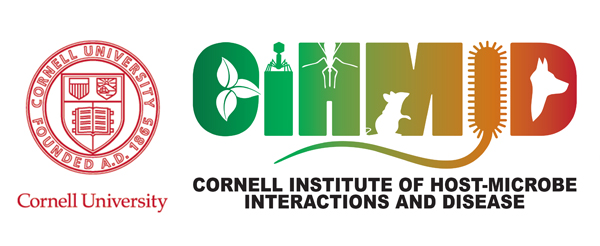The Cornell Institute of Host-Microbe Interactions and Disease (CIHMID) is a multi-college institute at Cornell University in Ithaca
Located in the Finger Lakes region of upstate New York, Cornell University is a member of the Ivy League and is the land grant university of the State of New York.
CIHMID includes the research groups of more than 65 faculty studying host-microbe interactions along the continuum from beneficial to pathogenic. Hosts include animals and plants in natural, agricultural, and laboratory settings, as well as humans and domesticated animals in clinical and veterinary settings.
The research teams study the full spectrum of microbial associates with these hosts, including bacterial, viruses, fungi, and parasites. CIHMID facilitates collaborative interaction among the teams and provides training and professional development at undergraduate and postdoctoral levels.
Brian P. Lazzaro – Genetics of Host-Pathogen Interactions
Dr Lazzaro’s research program examines the functional genetics and evolution of insect-pathogen interactions. The overarching philosophy in his group is that host and pathogen are interacting components of a single system, shaped by the abiotic environment.
Dr Lazzaro’s team envisions the immune system as being embedded in the overall physiological context of the host. This means that genetic factors influencing resistance to infection may lie outside the canonical immune system, and may include genes conventionally associated with processes such as metabolism or reproduction.
The Lazzaro group has extensively studied mutual constraint between immune performance and reproductive output. The team has also shown that altering aspects of the abiotic environment such as ambient temperature or nutritional availability impacts host physiological state, thereby altering the quality of defense against infection.
Yet the host is itself the habitat in which the pathogen lives, so physiological changes in the host translate into environmental changes for the pathogen, in turn stimulating physiological changes in the pathogen.
Thus host immunity, pathogen anti-immune defense, host physiology, and pathogen physiology are all interlinked in a system of dynamic feedbacks that are shaped by the external environment.



